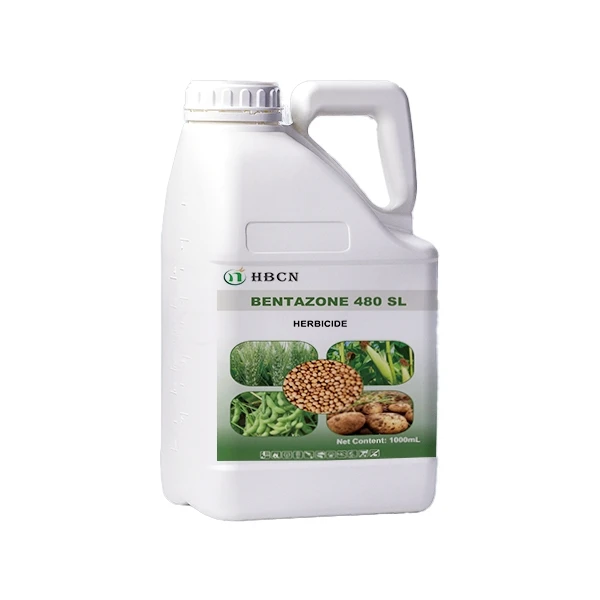
Nov . 07, 2024 15:31 Back to list
Understanding the Uses and Risks of Aluminum Phosphide in Pest Control Applications
Understanding Aluminium Phosphide Tablets Uses, Risks, and Safety Considerations
Aluminium phosphide (AlP) is a chemical compound primarily used as a pesticide and fumigant for agricultural products. It typically comes in tablet form, which is utilized for efficiently delivering phosphine gas when it comes into contact with moisture. Phosphine, a potent insecticide, effective against a wide range of pests, makes aluminium phosphide tablets popular in the agricultural sector for grain storage. However, the use of these tablets carries significant risks, necessitating a thorough understanding of their applications, dangers, and safety measures.
Applications of Aluminium Phosphide Tablets
Aluminium phosphide is employed mainly in the protection of stored grains, seeds, and other agricultural products from pest infestations. When the tablet reacts with moisture in the air or the moisture content of the material being treated, it releases phosphine gas. This gas is effective in penetrating grains and other commodities, eliminating pests such as weevils, moths, and various insects that damage stored goods. The ability of phosphine to disperse quickly and effectively within storage environments makes aluminium phosphide tablets an invaluable tool for farmers and grain handlers.
The tablets are favored for their high efficacy and low residue, which means they do not leave harmful residues on treated products. This is particularly important given the global emphasis on food safety and the importance of ensuring that agricultural products are free of potentially harmful chemical residues. Moreover, aluminium phosphide is relatively inexpensive compared to other pest control options, making it an attractive choice for many agricultural operations.
Risks and Dangers
Despite the practicality of aluminium phosphide tablets, they pose significant health risks to humans and animals. Phosphine gas is highly toxic and can be fatal if inhaled, ingested, or absorbed through the skin. Symptoms of phosphine exposure may include difficulty breathing, nausea, vomiting, dizziness, and in severe cases, pulmonary edema, and even death. The danger is particularly acute in poorly ventilated spaces where phosphine can accumulate.
tablete aluminium phosphide

There have been numerous incidents of poisoning, both intentional and accidental, linked to the misuse or mishandling of aluminium phosphide. Tragically, there have also been reports of its use in suicides, highlighting the importance of strict regulations and control measures regarding its sale and distribution.
Proper training and stringent safety protocols are essential when handling aluminium phosphide tablets. Users should always wear personal protective equipment (PPE), including masks, gloves, and goggles, to mitigate exposure risk. Additionally, application should only occur in designated areas with proper ventilation to dissipate any released phosphine gas quickly. It is crucial to adhere to recommended dosages and application practices to minimize risks to human health and the environment.
Regulatory Measures and Best Practices
To minimize the risks associated with aluminium phosphide tablets, various regulatory bodies around the world have put measures in place. In many countries, the sale of aluminium phosphide is restricted to licensed professionals trained in its safe handling and application. Additionally, many jurisdictions require that those who handle or apply these fumigants adhere to specific guidelines that include safety training and the use of appropriate protective gear.
Additionally, alternative pest control methods are gaining traction. Integrated pest management (IPM) strategies combine multiple tactics, including biological control, trapping, and the judicious use of chemicals, to reduce reliance on hazardous substances like aluminium phosphide. This holistic approach not only helps decrease the potential for chemical exposure but also promotes environmental sustainability.
Conclusion
Aluminium phosphide tablets are an effective means of controlling pests in agricultural settings, providing significant benefits for grain storage and pest management. However, the inherent risks associated with their use cannot be overlooked. It is imperative for individuals and organizations involved in the application of aluminium phosphide to prioritize safety, undergo proper training, and remain vigilant about regulatory requirements. By doing so, they can maximize the benefits of this powerful tool while minimizing the dangers it presents to human health and the environment. As the agricultural sector continues to evolve, ongoing education and adherence to safety protocols will play a crucial role in ensuring that aluminium phosphide remains a safe and effective option for pest control.
-
Dicamba Herbicide for Creeping Charlie – Effective & Selective Weed Control Solution
NewsJun.10,2025
-
Premium Penthiopyrad Fungicide for Effective Crop Protection Compare with Carbendazim & Copper Fungicides
NewsJun.10,2025
-
Top Products Containing Bifenthrin Effective Insecticide Solutions
NewsJun.10,2025
-
Powerful Lambda Cyhalothrin & Emamectin Benzoate Insecticide
NewsJun.10,2025
-
Emamectin Benzoate 5% Wholesale Supplier - Premium Quality
NewsJun.10,2025
-
Indoxacarb PubChem Key Pesticide Properties & Benefits
NewsJun.09,2025
